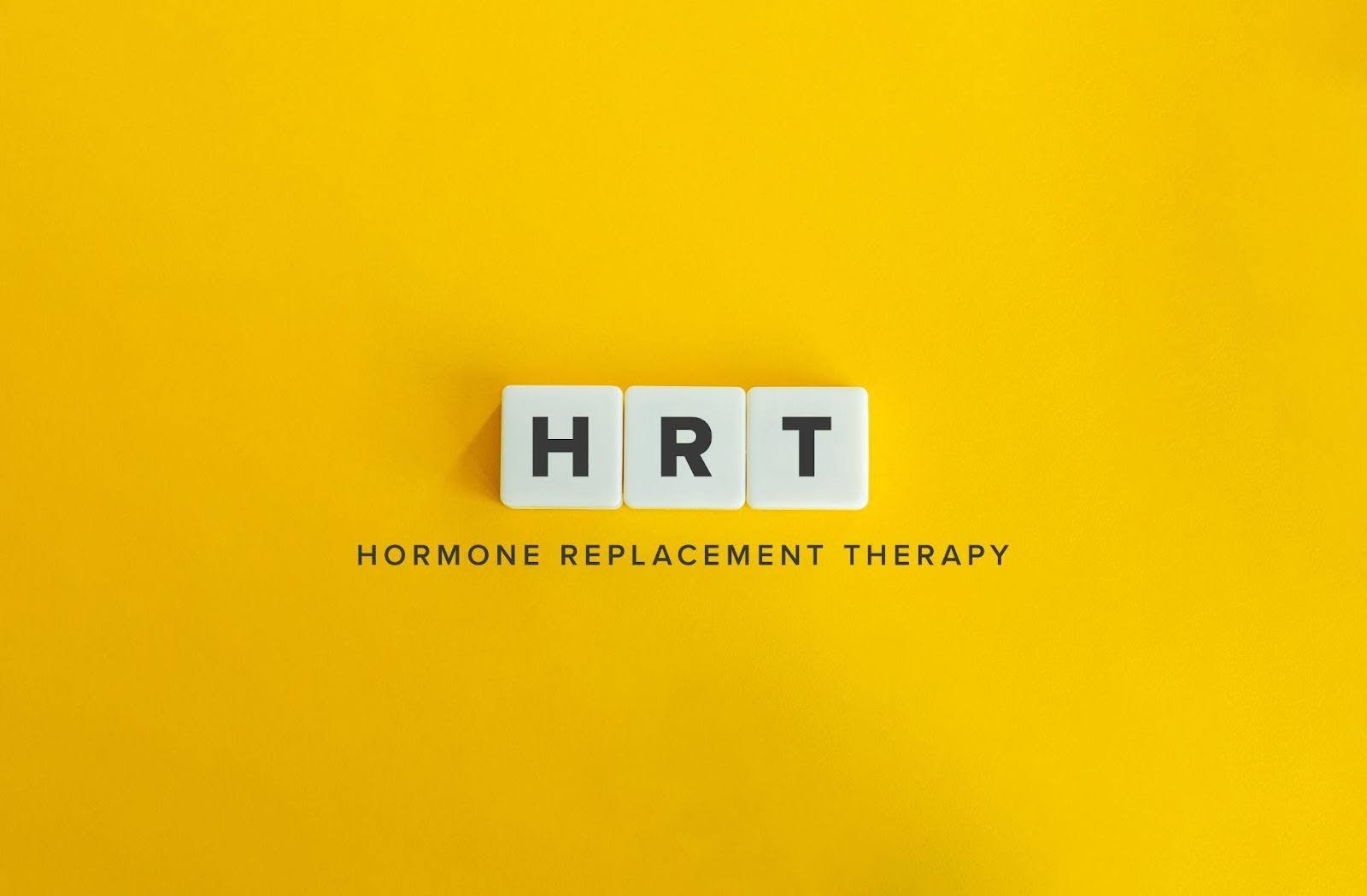If you’re navigating menopause or struggling with hormone-related symptoms, you’ve probably heard about hormone replacement therapy (HRT).
HRT is one of the most effective ways to relieve hot flashes, mood swings, sleep disturbances, and other frustrating changes that come with shifting hormone levels.
But once you start exploring your options, a big question quickly arises. Should you choose bioidentical or synthetic hormones?
While both types of HRT aim to restore hormonal balance, they’re not the same. They differ in how they’re made, how they behave in your body, and how they’re prescribed.
Some women prefer the natural, customized feel of bioidentical hormones. Others feel more confident with the consistency and long-term research behind synthetic HRT.
In this blog, we’ll break down what makes these two options different, the benefits and risks of each, and how to work with your provider to choose the best fit for your body and lifestyle.
Whether you’re exploring hormone therapy or looking to switch approaches, this guide will give you the clarity you need to make an informed, confident choice.
What is Hormone Replacement Therapy?
Hormone replacement therapy relieves symptoms caused by a drop in hormone levels, most commonly during menopause or perimenopause.
As your body produces less estrogen, progesterone, and sometimes testosterone, you may experience hot flashes, night sweats, mood swings, sleep issues, brain fog, and other disruptions to daily life. HRT works by replacing the hormones your body is no longer making in sufficient amounts, helping to restore balance and reduce or eliminate those symptoms.
There are different types of HRT, depending on your health history and whether you’ve had a hysterectomy. Estrogen-only therapy is usually prescribed for women without a uterus, while combined estrogen and progesterone therapy is recommended if you still have one. Some treatment plans also include testosterone to support libido and energy levels.
HRT comes in several delivery forms, including pills, patches, creams, gels, vaginal rings, and injections, allowing for flexibility based on your preferences and needs.
What are bioidentical hormones?

Bioidentical hormones are lab-made hormones that are chemically identical to the ones your body naturally produces. They’re most commonly used in HRT to treat symptoms of menopause, perimenopause, and other hormone-related imbalances.
The goal of bioidentical hormone therapy is to restore hormone levels in a way that closely matches your body’s natural chemistry.
These hormones typically come from plant sources, such as soy or yams, and are then processed to mimic the exact molecular structure of human hormones. Because of that match, many women feel that bioidentical hormones are more “natural” and better tolerated than synthetic options.
Bioidentical hormones are available in two main forms:
- FDA-approved prescription products with regulated doses and quality.
- Compounded formulations customized by a compounding pharmacy based on individual hormone testing and symptoms.
While bioidentical hormone therapy offers a more personalized approach, it’s essential to work with a knowledgeable provider who can monitor your levels, adjust dosing as needed, and ensure the treatment is safe and effective.
For many women, bioidentical hormones provide meaningful relief from menopause symptoms while supporting long-term health and well-being.
What are synthetic hormones?
Synthetic hormones are lab-created hormones used in HRT to relieve symptoms related to menopause and hormone imbalance. Unlike bioidentical hormones, synthetic hormones do not have the exact molecular structure as the hormones naturally produced by your body.
While they mimic hormone activity and are effective at symptom relief, their chemical makeup is slightly different, which may affect how they interact with your body’s hormone receptors.
Many synthetic hormones are manufactured from chemical compounds or derived from animal sources, such as conjugated equine estrogens (from horse urine), which are commonly found in some traditional HRT medications. These hormones are available in standardized doses and are FDA-approved.
Synthetic hormone treatments come in a variety of forms, including oral tablets, patches, injections, and vaginal creams. They are often used in estrogen-only or combined estrogen-progestin therapies, depending on whether or not a person still has a uterus.
While synthetic hormones are effective for many people, some prefer bioidentical hormones due to concerns about side effects or a desire for a more natural approach.
Still, synthetic HRT is backed by decades of research and remains a widely used and accessible option for managing menopause symptoms. As with any hormone therapy, it’s important to work with a healthcare provider to determine the best and safest option for your needs.
Benefits and risks of bioidentical HRT
Natural hormone match
Bioidentical hormones have the same molecular structure as the hormones your body naturally produces. This close match may improve how your body responds and reduce certain side effects in some women.
Symptom relief
BHRT is effective at treating a wide range of menopause symptoms, including hot flashes, night sweats, mood swings and irritability, sleep disturbances, vaginal dryness and discomfort, and low libido and fatigue.
Personalized dosing
Compounded bioidentical hormones can be tailored to your specific hormone levels and symptoms, offering a highly individualized treatment approach.
Flexible delivery options
BHRT can be administered in various forms, including creams, gels, patches, capsules, and troches (dissolvable lozenges), giving you more control over how you receive your therapy.
Potential long-term support
In addition to symptom relief, BHRT may help protect against osteoporosis, maintain skin elasticity, and support mental clarity when used appropriately.

Risks of bioidentical HRT
Limited regulation for compounded products
Custom-compounded BHRT formulations are not FDA-approved, which means they aren’t held to the same testing standards as traditional medications. If not carefully managed by a reputable provider, this can lead to variations in strength, purity, and consistency.
Requires close monitoring
Because doses are often personalized, BHRT requires regular hormone level testing and follow-up appointments to ensure safety and effectiveness.
For many women, bioidentical hormone replacement therapy offers effective relief with a natural and customizable approach. When properly managed by an experienced provider, BHRT can help you regain balance and feel more like yourself, safely and confidently.
Benefits and risks of synthetic HRT
Strong safety data and FDA approval
Most synthetic HRT options are FDA-approved. That gives both patients and providers confidence in their safety, dosing accuracy, and effectiveness.
Convenient, consistent dosing
Synthetic hormones are available in standardized doses, making it easier to track results and ensure consistent hormone levels. This is especially helpful when starting treatment or adjusting a regimen.
Support for long-term health
In addition to symptom relief, synthetic HRT can help:
- Maintain bone density and reduce the risk of osteoporosis
- Improve skin elasticity and hydration
- Support urinary tract health and cognitive function (when started early in menopause)
Risks of synthetic HRT
Possible side effects
Some women experience temporary side effects when starting HRT, including nausea or bloating, breast tenderness, headaches, mood changes, and irregular bleeding.
Less personalization
Because synthetic HRT is often dispensed in fixed doses, there’s less room for customizing the treatment based on your hormone levels or symptom severity. Some women may feel that their therapy isn’t as finely tuned as it could be with a more individualized approach.
Synthetic HRT remains a safe, effective, and well-researched option for many women, especially when started early in menopause and used under the care of a knowledgeable provider.
While risks exist, the benefits often outweigh them for those struggling with disruptive symptoms. Regular monitoring and open communication with your healthcare team are key to making synthetic HRT a safe part of your long-term wellness plan.

Hormone replacement therapy at High West Medical
If you’re struggling with menopause symptoms or hormone imbalance, you don’t have to figure it out alone. At High West Medical, we specialize in both bioidentical and synthetic hormone replacement therapy, offering personalized, expert-guided care tailored to your body’s unique needs.
Whether you’re exploring HRT for the first time or looking to optimize your current treatment, our compassionate team is here to help you feel balanced, energized, and in control again.
Contact High West Medical today to schedule your consultation and discover which hormone therapy option is right for you. Your well-being is our priority, and with the right plan, relief is closer than you think.
Call us at 435.625.3669, email us, or fill out the form on our website to get in touch.





